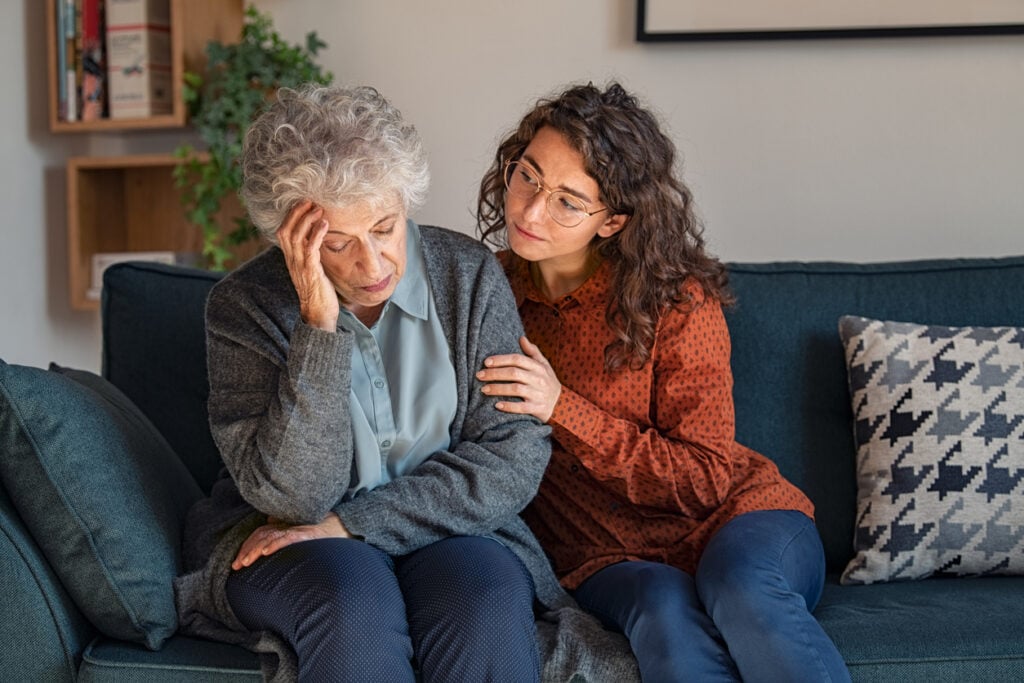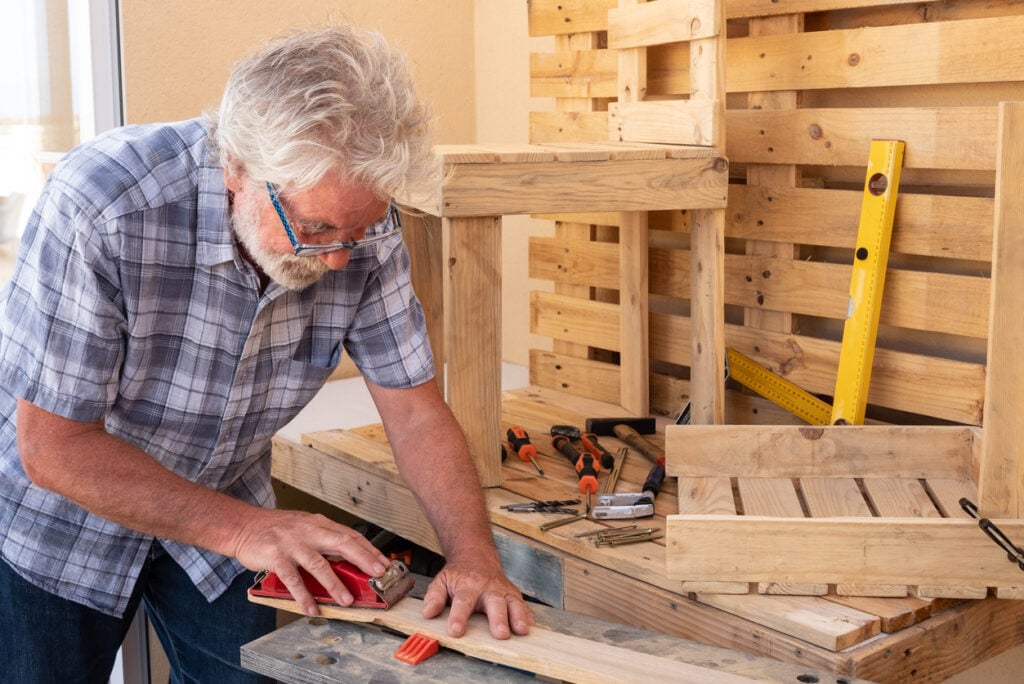It’s shocking how many older people make their grief harder than it needs to be by overlooking these simple strategies to heal.

Losing someone close to you can be a tidal wave that upends everything familiar. The routines that once gave your days structure suddenly feel hollow. A song, a scent, or even a moment of silence can trigger waves of emotion that leave you feeling lost and unsteady. It’s a heavy burden, and too many older adults struggle in silence, unsure of how to ease the ache in their hearts.
What’s worse is that some people unintentionally prolong their grief by ignoring simple yet powerful tools that could make the healing journey a little more bearable. It’s not about forgetting the person you lost—it’s about finding healthy ways to carry their memory while you rediscover your footing. These 11 tools offer a path forward, one compassionate step at a time.
1. Don’t Keep It All Inside—Talk About Your Feelings

Suppressing grief doesn’t make it disappear—it just builds a wall around your heart that gets harder to break down over time. Talking with someone you trust, whether it’s a sibling, a lifelong friend, or a grief counselor, helps bring those tangled emotions into the open. Speaking your truth aloud can be surprisingly freeing, helping you process pain instead of letting it fester beneath the surface. If talking feels overwhelming, writing in a journal is also an incredibly therapeutic way to untangle your thoughts and gain insight into your own emotions.
Research shows that expressing your emotions in words—whether spoken or written—can reduce the intensity of negative feelings and provide a greater sense of control during emotionally overwhelming times. This simple act of sharing your grief can initiate healing and prevent you from feeling stuck in an endless loop of sorrow, as noted at Psychology Today.
2. Let Yourself Feel the Pain Instead of Pretending You’re Okay

There’s an unspoken pressure in our culture to stay strong or “move on” quickly after a loss, especially for older adults who might feel they need to set an example. But grief isn’t a performance—it’s a deeply personal and often chaotic process. When you try to pretend everything’s fine, you deny yourself the right to fully experience your emotions. Let yourself cry in the middle of the day, reminisce without shame, or sit quietly and feel your sadness without judging yourself for it.
Allowing yourself to feel sorrow in its rawest form doesn’t mean you’re falling apart; it means you’re honoring the depth of your love and loss. Clinical studies show that embracing painful emotions instead of suppressing them can lead to faster emotional recovery and better long-term mental health outcomes, as reported at Harvard Health Publishing.
3. Keep a Daily Routine, Even When It Feels Pointless

After a significant loss, even the simplest daily activities can feel overwhelming or meaningless. But keeping a consistent routine—waking up at a regular hour, making your bed, preparing meals—can give your days a sense of rhythm that supports your emotional well-being. These small anchors offer a sense of purpose, even when motivation is hard to find.
Routine provides structure in a world that suddenly feels chaotic. It helps you reclaim a bit of normalcy and reminds you that you still have agency over your life. Maintaining regular habits is especially important for seniors, as structure has been shown to support mental health and improve resilience during grief, as mentioned at the National Institutes of Health (NIH).
4. Find a Way to Honor Their Memory That Feels Right for You

When someone you love dies, it’s natural to look for ways to keep their memory alive. But there’s no single “right” way to do this—it’s about what feels meaningful to you. Some people find peace in creating a memorial space at home, while others might start a scrapbook, light a candle on special occasions, or write letters to the person they lost. The key is choosing something that allows you to continue your bond in a way that feels authentic and comforting.
Honoring their legacy doesn’t mean you’re living in the past—it means you’re giving yourself permission to carry that connection forward with you. It helps transform the ache of loss into something more reflective and loving. These rituals, however small, can ground you and give your grief a shape that’s easier to hold.
5. Don’t Be Afraid to Ask for Professional Help When Grief Feels Overwhelming

Grief can sometimes turn into something darker—persistent sadness, hopelessness, or even a sense that life no longer has meaning. When your grief begins to feel more like despair, it’s time to reach out. A therapist trained in grief counseling can help you navigate this difficult terrain, offering support that’s nonjudgmental and deeply healing. Support groups also provide a place to share your story with others who understand firsthand what you’re going through.
You might worry that seeking help means you’re not strong enough to handle your emotions on your own, but it’s actually a profound act of courage. Reaching out shows that you’re committed to finding your way through the pain instead of being swallowed by it. The tools and guidance offered by professionals can give you a new sense of hope when it feels like none exists.
6. Avoid Isolating Yourself, Even If Being Around People Feels Hard

When you’re grieving, it’s tempting to retreat from the world. You may feel exhausted by conversations, uncomfortable with sympathy, or unsure of how to interact with others now that your world has changed. But isolating yourself only intensifies the pain and leaves you without the lifeline of connection. A simple lunch with a friend, a walk with a neighbor, or even a phone call can help you feel just a little less alone.
Staying connected doesn’t mean you have to pretend to be okay—it just means showing up and letting others walk beside you. Often, the quiet companionship of people who care is more healing than any advice they might offer. Human connection is a form of medicine during grief, and allowing others to be there for you is part of the healing journey.
7. Try Doing Something New to Break Free from the Grief Spiral

After loss, it’s easy to become trapped in a repetitive cycle of sadness and memory. Doing something new—a class, a volunteer role, a creative project—doesn’t mean you’re replacing your loved one. It simply means you’re making room for a new kind of growth. These activities act as reminders that life still has places to go, even if the path looks different now.
Trying something unfamiliar can reawaken parts of you that felt dormant. It can bring moments of joy or challenge that shift your focus and energize you in surprising ways. Stepping into something new might feel uncomfortable at first, but it also cracks open a door to healing by giving you permission to live again.
8. Get Outside Because Nature Has a Way of Healing Your Soul

There’s a unique, quiet wisdom in the natural world that can be deeply comforting during grief. The sound of birds, the feel of wind on your skin, or the changing colors of the seasons can remind you that life is always in motion—even after deep loss. Time spent outdoors allows you to breathe a little deeper, slow down your racing mind, and reconnect with the rhythms of life that go on, even when yours feels disrupted.
Being outside doesn’t require grand adventures—just sitting on a bench under a tree or walking a trail can work wonders. Many people find that nature gives them a space to reflect without judgment and find moments of peace. It’s a way to feel grounded again, to feel held by something larger than your own sorrow.
9. Take Care of Your Body, Even If You Don’t Feel Like It

Grief isn’t just emotional—it’s physical, too. You may feel tired all the time, experience appetite changes, or have trouble sleeping. That’s why caring for your body is critical, even when it feels like the last thing you want to do. Start small: drink more water, eat one nourishing meal, stretch your arms and legs, or get ten minutes of fresh air. These basic acts of self-care can have a ripple effect on your emotional resilience.
Your body and mind are connected, and treating your body kindly helps restore the strength you’ll need to navigate the emotional journey ahead. You’re not trying to fix your grief through exercise or diet—you’re giving yourself the foundation to face it without completely falling apart. Caring for your physical self is one way to say, “I still matter,” and that’s a powerful statement in the midst of sorrow.
10. Let Go of Guilt—It’s Okay to Find Joy Again

After someone you love dies, it can feel wrong to smile again or to enjoy something without them. You might find yourself laughing and then suddenly stopping, thinking, “How can I be happy without them here?” But joy doesn’t dishonor their memory—it honors your humanity. It shows that love continues to bloom in different ways, even after loss.
Letting go of guilt doesn’t mean forgetting—it means understanding that life is a mix of sorrow and sweetness. Your loved one would likely want you to keep living, to find light in your days. Embracing joy isn’t a betrayal—it’s a brave step toward wholeness. It’s how you carry both your grief and your gratitude into the future.
11. Focus on Small Steps Forward Instead of Fixating on the Big Picture

Grief can make the future feel like an impossible mountain to climb. You may find yourself wondering how you’ll survive holidays, birthdays, or even just next week. Instead of overwhelming yourself with long-term expectations, focus on what you can do today. Get out of bed. Take a shower. Call a friend. These are not small victories—they are survival.
When you narrow your focus to manageable steps, you begin to feel less paralyzed. One day, those small efforts start to stack up into a life you can live again. You may still carry sadness with you, but it won’t always weigh you down so heavily. Grief will change shape over time, and with steady, compassionate steps, you’ll learn to carry it with more strength and grace.
